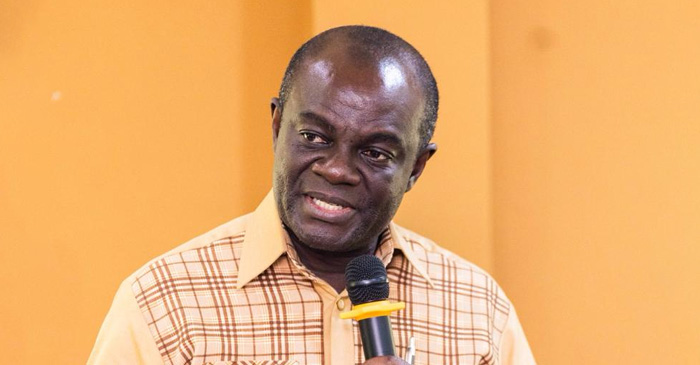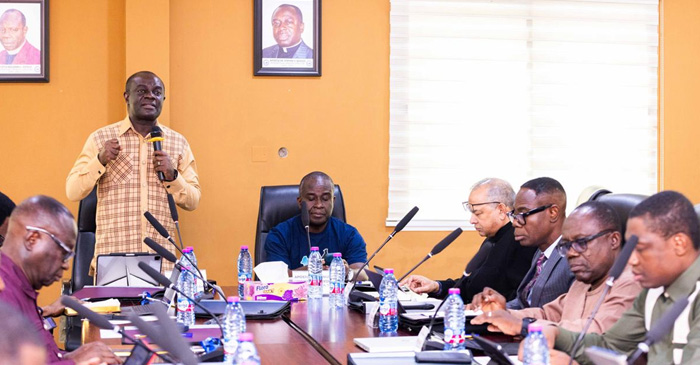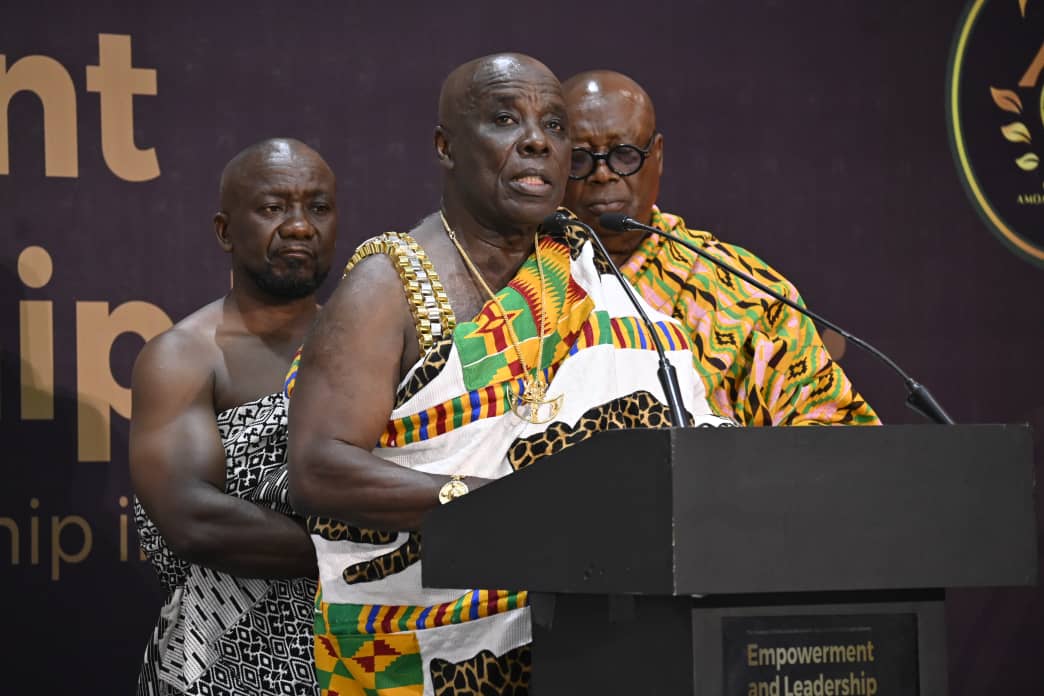
The Okyenhene Osagyefuo Amoatia Ofori Panin has tasked religious leaders to take an active role in environmental stewardship in the wake of the devastating effect of climate change on the global economy and its effect on human survival.
According to Osagyefuo, Ghana remains a religious Nation with majority of its citizens deeply believing in either the Christian faith, Islam and/or traditional beliefs. He says, one of the cardinal principles underpinning these religions center on environmental stewardship, yet our actions often fall short of these teachings.
Delivering a Public lecture Organized by the Graduate Students Association at the University of Ghana, under the theme: ‘Transformational Leadership in Contemporary Ghana’, Okyenhene posit that, transformational leaders are passionate, energetic, inspire, and create a sense of commitment and purpose among followers.
He indicated that, religious leaders must endeavor to inspire their followers to lead by the dictate of their religion in conserving the environment.
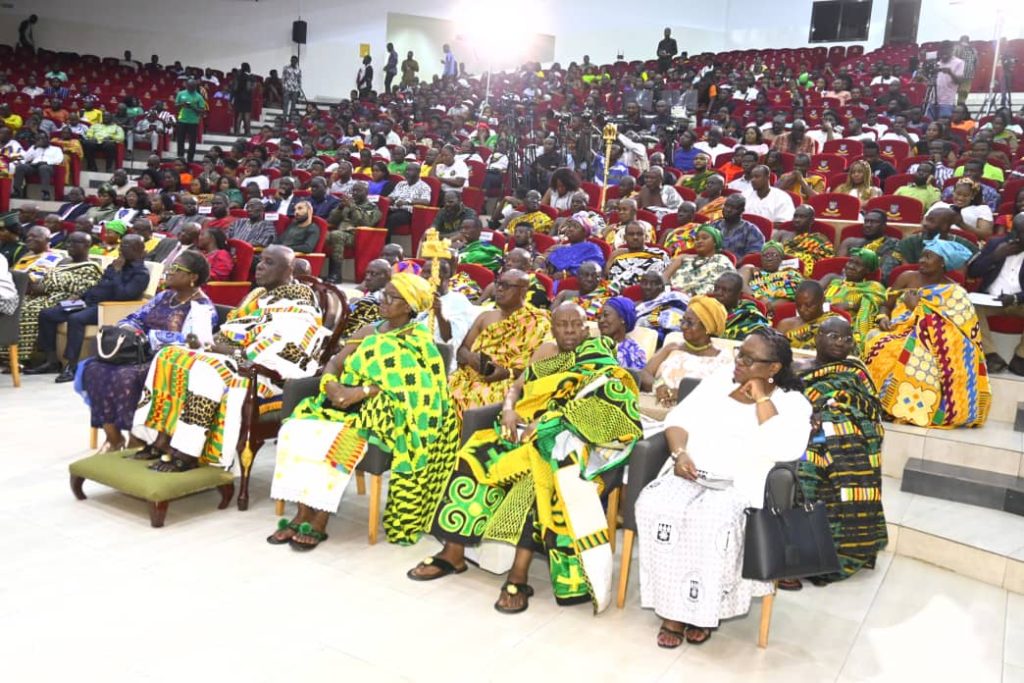
Osagyefuo said, in Christianity, the Bible emphasizes the importance of caring for creation. He referenced the words in Genesis 2:15 which states that “The Lord God took the man and put him in the Garden of Eden to work it and take care of it.” He said this verse underscores Christian’s duty to nurture and protect the environment.
The Okyenhene further cited the Quran in Surah Al-A’raf 7:31, which also highlights the principle of moderation and the avoidance of waste, which is essential for environmental sustainability. Additionally, the Prophet Muhammad (PBUH) emphasized the importance of planting trees and preserving nature, stating, “If a Muslim plants a tree or sows seeds, and then a bird, or a person, or an animal eats from it, it is regarded as a charitable gift (Sadaqah) for him” (Sahih Bukhari).
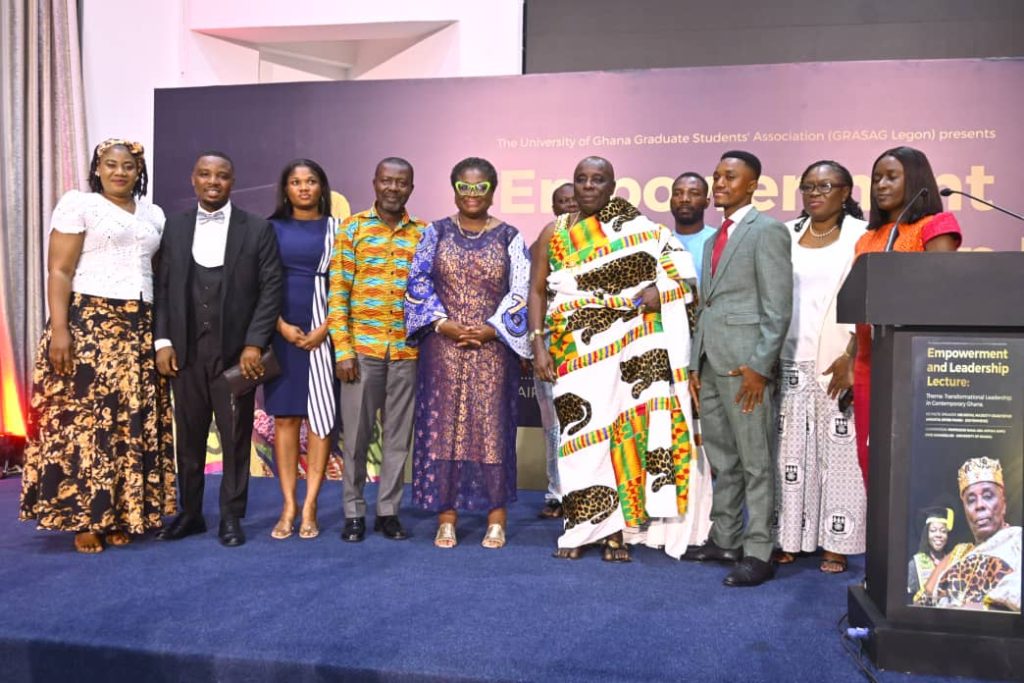
Osagyefuo questioned whether Ghanaians are truly living up to their religious principles when it comes to environmental stewardship. He noted that, the evidence suggests that we have much room for improvement. Adding that, the Earth’s ability to support life is being severely compromised.
Despite the strides made by transformational leaders, several challenges persist in Ghana’s leadership landscape. One significant challenge is illegal mining, also known as “galamsey,” which has devastated the environment and continues to pose a threat to sustainable development.
It is against this background that the Graduate Students Association of the University of Ghana organized the public lecture to intensify calls for leaders and religious institutions to play active roles in environmental stewardship.
Present at the lecture were some clergy, traditional rulers, and government officials.
Source:Penttvnewsroom



